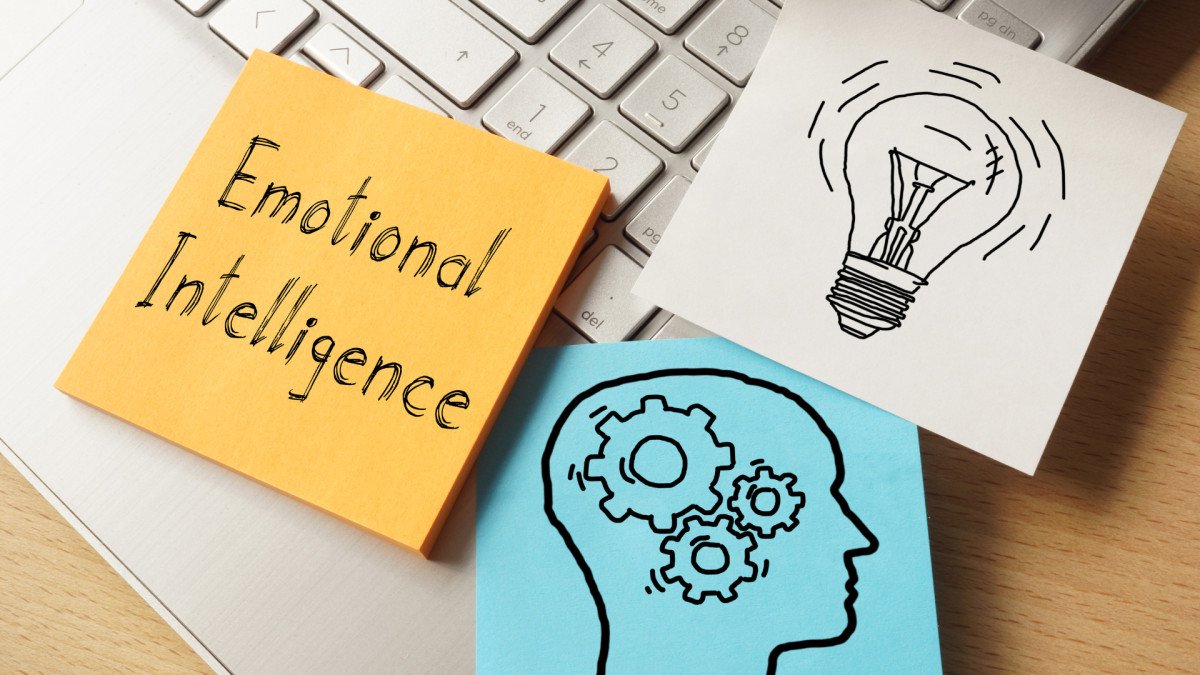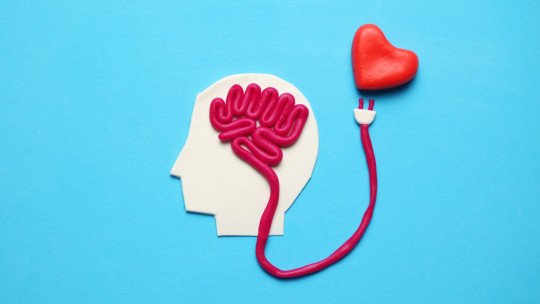
Whether you want it or not, emotions play a fundamental role in every aspect of your life. From interpersonal relationships to job performance, our emotions influence our decisions, behaviors, and even our physical health. However, you don’t have to be a hostage to everything they dictate to you.
By cultivating emotional intelligence, you can turn your emotions into powerful allies that will help you make smarter, more informed decisions, build stronger relationships, and achieve your personal and professional goals. In this article, we will explore how emotional intelligence can transform your everyday life and allow you to navigate countless situations with greater calm, clarity, and assertiveness.
Emotional intelligence (EI) is often described as the ability to understand, manage, and use emotions in positive ways. It helps navigate social complexities, communicate effectively, and make decisions that lead to personal and professional success. In today’s world, where human interactions and relationships are pivotal, the significance of emotional intelligence cannot be overstated. Whether you’re resolving conflicts, collaborating at work, or simply interacting with family and friends, emotional intelligence plays a key role in leading a fulfilling and balanced life.
What is emotional intelligence?
Emotional intelligence is a skill that influences the way we manage our emotions, relate to others, and make decisions in our daily lives. It is the ability to recognize, understand and manage our own emotions, as well as the ability to perceive and understand the emotions of others.
This great tool is linked to empathy, assertiveness, self-awareness and emotional self-regulation. By developing it, we acquire the ability to recognize and understand the emotions we experience, which allows us to manage them more effectively. Additionally, we can better understand the emotions of others, which promotes empathy and interpersonal connection.
Emotional intelligence refers to the capacity to be aware of, control, and express emotions in a healthy and constructive way. It involves recognizing your own emotions and those of others, using emotional understanding to guide thinking and behavior, and adapting to different environments.
At its core, emotional intelligence is about being smart with your emotions. It can help you build better relationships, succeed in work, and lead a more content and emotionally stable life.
In everyday life, emotional intelligence allows us to manage conflicts constructively, establish stronger personal relationships, make decisions based on empathy and generate a more harmonious work environment. Recognizing our own emotions and understanding those of others helps us promote an environment of mutual respect and understanding.
And, yes: the importance of emotional intelligence in everyday life is enormous, since it is an essential skill that influences all aspects of our lives. By enhancing it, we can improve our quality of life, strengthen our interpersonal relationships and make better decisions.

How emotional intelligence helps you be better
Have you ever wondered why some people seem to handle difficult situations calmly and assertively, while others become angry or frustrated? All this leads us to emotional intelligence. Below, we invite you to discover other benefits of developing this valuable skill:
1. It makes you take control of your emotions
Instead of becoming a victim of your emotions, emotional intelligence allows you to take control. You will be able to face challenging situations with greater calm and mental clarity, avoiding impulsive reactions that could damage your relationships or your well-being.
2. Helps you decide better
By becoming more aware of your own emotions and those of others, you become more self-aware. This allows you to understand your emotional patterns and make better decisions, aligned with your personal values and goals.
3. It allows you to better manage stress
In our daily routine we face challenges and stressful circumstances. Knowing how to properly manage emotions gives us the necessary skills to control stress effectively. Recognizing our own emotions helps us identify the causes of stress, while regulating our emotions makes it easier to manage these feelings.
4. It drives you to grow personally and professionally
Emotional intelligence provides the appropriate means to face everyday challenges with strength, overcome barriers and achieve your goals. This favors your evolution both on a personal and professional level, and drives you to achieve your full performance.
5. Invites you to develop your resilience
The ability to overcome adversity is closely related to the proper management of emotions. Those people with a high emotional quotient tend to adapt more effectively to complicated circumstances, obtaining lessons and growing from challenging or even painful experiences.
In short, developing emotional intelligence is an investment in your well-being and the quality of your relationships. It is a journey of self-discovery that will allow you to become the best version of yourself and enjoy a fuller and more satisfying life.

Keys to cultivate your emotional intelligence
Cultivating emotional intelligence is essential to improve our quality of life and our interpersonal relationships. Here we leave you some keys to develop this skill:
1. Develop your emotional self-awareness
Take time to reflect on your own emotions, identifying what you feel and why you feel it. Knowing yourself will help you manage your emotions more effectively.
2. Practice empathy
Putting yourself in other people’s shoes and understanding their emotions is key to strengthening your emotional skills. Listen actively, show genuine interest, and try to see things from their perspective.
3. Test emotional self-regulation
Learn to control your emotional impulses by avoiding impulsive reactions. Look for stress management strategies, such as deep breathing or meditation, to help you stay calm in challenging situations.
4. Develop your social skills
Improve your communication and conflict resolution skills to build stronger and more meaningful relationships. Practice assertiveness, active listening, and empathy in your daily interactions.
5. Get self-motivated
Set clear goals and motivate yourself to achieve them, even in times of adversity. Cultivate a positive attitude and a resilient mindset that allows you to overcome obstacles with determination. If you feel that this is difficult for you, do not despair: emotional intelligence is not an innate gift, but a skill that you can develop with dedication and practice. By putting these keys into practice in your daily life, you will be improving your emotional well-being and promoting the development of healthy relationships in your life. Apply them now!

Components of Emotional Intelligence
Understanding the components of emotional intelligence is crucial to harnessing its benefits. Psychologist Daniel Goleman, a pioneer in emotional intelligence theory, identified five key components:
1. Self-Awareness
Self-awareness is the ability to recognize and understand your own emotions. It involves being mindful of how your emotions affect your thoughts and actions, as well as how others perceive you.
Example
If you’re feeling stressed at work, self-awareness allows you to acknowledge your stress and its effects on your behavior, helping you respond appropriately instead of lashing out or shutting down.
2. Self-Regulation
Self-regulation refers to the ability to control impulsive emotions and behaviors. It involves staying calm, being flexible, and thinking before acting, even in challenging situations.
Example
Instead of reacting angrily when someone criticizes you, self-regulation helps you pause, process the feedback, and respond in a composed manner.
3. Motivation
Motivation in the context of emotional intelligence means being driven to pursue goals for reasons beyond external rewards like money or status. It includes passion for your work, persistence, and a strong desire to improve.
Example
A person with high emotional intelligence is motivated by internal satisfaction and personal growth, rather than external validation, which helps them stay focused on long-term goals.
4. Empathy
Empathy is the ability to understand and share the feelings of others. It allows you to tune into the emotions of those around you and respond with compassion and understanding.
Example
In a team setting, an empathetic leader can sense when a team member is feeling overwhelmed and provide support or offer flexibility in deadlines.
5. Social Skills
Social skills involve the ability to manage relationships and communicate effectively. They include conflict resolution, teamwork, and the ability to inspire and influence others.
Example
A person with strong social skills can navigate workplace disagreements by promoting open communication and finding compromises that benefit all parties.
Why Is Emotional Intelligence Important in Everyday Life?
Emotional intelligence influences many aspects of daily life. Here’s why it matters:
1. Better Communication
Emotional intelligence enhances your ability to express your thoughts and feelings clearly while also understanding others’ perspectives. In conversations, it helps avoid misunderstandings, and in disagreements, it enables you to respond calmly rather than react defensively.
2. Improved Relationships
People with high emotional intelligence are often better at managing relationships. They are more empathetic, which makes them more attuned to the emotional needs of their friends, family, and coworkers. This leads to stronger, more meaningful connections.
3. Enhanced Problem-Solving and Decision-Making
Emotional intelligence helps in making more rational decisions by managing emotions effectively. For instance, instead of letting fear or frustration cloud judgment, someone with high EI can evaluate situations more objectively and make better decisions, even under pressure.
4. Greater Emotional Resilience
Life is full of challenges, and emotional intelligence equips you to handle setbacks and adversity. Being emotionally intelligent allows you to bounce back from failures, adapt to changes, and manage stress more effectively.
5. Increased Workplace Success
In the workplace, emotional intelligence is a highly valued skill. It enhances leadership abilities, fosters teamwork, and helps in conflict resolution. Employers increasingly recognize that emotionally intelligent individuals tend to perform better in leadership roles and contribute positively to company culture.
6. Positive Mental Health
People with high emotional intelligence are more likely to manage stress and anxiety well. By understanding and processing their emotions, they are better equipped to maintain mental and emotional balance, reducing the likelihood of burnout or emotional fatigue.
7. Conflict Resolution
Whether at work or in personal relationships, emotional intelligence is crucial for resolving conflicts. Understanding your own emotions and those of others allows you to approach conflicts with empathy and patience, leading to more constructive outcomes.
8. Self-Improvement
Emotional intelligence fosters a growth mindset. It encourages you to reflect on your strengths and weaknesses, motivating you to work on personal development and emotional growth.
How to Improve Emotional Intelligence
While some people naturally possess high emotional intelligence, it’s also a skill that can be developed with practice. Here are a few ways to enhance your emotional intelligence:
1. Practice Mindfulness
Mindfulness involves being present and fully engaged in the moment. By practicing mindfulness, you become more aware of your emotions and learn to observe them without judgment. This helps in improving self-awareness and self-regulation.
2. Reflect on Your Emotions
Taking time to reflect on your emotional responses helps you understand patterns in your behavior. Ask yourself why you reacted in a certain way and how you could handle similar situations better in the future.
3. Build Empathy
To increase your empathy, actively listen to others and try to understand their perspectives. Put yourself in their shoes and imagine how they feel. This can help you become more compassionate and understanding in your interactions.
4. Work on Communication Skills
Effective communication is key to expressing your emotions clearly and understanding others. Practice active listening, be open to feedback, and work on expressing your thoughts in a calm and composed manner.
5. Learn to Manage Stress
Stress can negatively impact emotional intelligence by clouding judgment and reducing self-control. Practice stress-management techniques such as deep breathing, meditation, or physical exercise to stay calm and focused.
6. Seek Feedback
Receiving feedback from others can provide valuable insights into how your emotions and behavior affect them. Use this feedback to improve your emotional intelligence and strengthen your relationships.
Emotional intelligence is an invaluable asset in both personal and professional life. It affects how we communicate, manage stress, resolve conflicts, and build meaningful relationships. By improving your emotional intelligence, you can lead a more balanced, successful, and fulfilling life. With self-awareness, empathy, and the ability to regulate emotions, you can navigate the complexities of everyday interactions with greater ease and understanding.
FAQs
What are the signs of high emotional intelligence?
People with high emotional intelligence are typically self-aware, empathetic, good communicators, and able to manage their emotions effectively. They tend to build strong relationships and handle stress well.
Can emotional intelligence be developed?
Yes, emotional intelligence can be improved with practice. Mindfulness, empathy, and communication skills are key areas to focus on if you want to enhance your emotional intelligence.
How does emotional intelligence impact leadership?
Emotionally intelligent leaders are better equipped to inspire and motivate their teams. They are more empathetic, effective in communication, and capable of resolving conflicts, leading to more productive and positive work environments.
Is emotional intelligence more important than IQ?
While IQ measures cognitive abilities, emotional intelligence measures social and emotional skills. Both are important, but emotional intelligence often plays a more significant role in determining success in relationships and leadership roles.
How can I manage my emotions better?
To manage emotions, practice self-awareness and mindfulness, reflect on your emotional responses, and work on communication skills. Learning to regulate stress is also crucial for emotional management.








